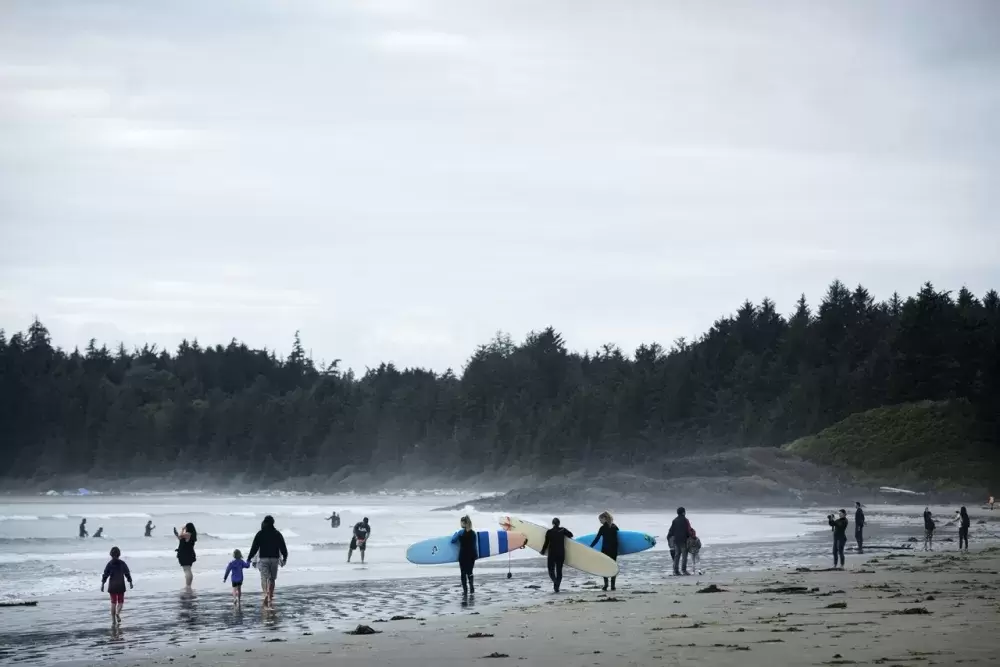Testing equipment that can confirm COVID-19 cases within an hour will soon be available for Nuu-chah-nulth communities on the west coast of Vancouver Island, according to a pledge recently made by the First Nations Health Authority.
The FNHA has procured three GeneXpert machines, which can detect the novel coronavirus in nasopharyngeal swabs specimens taken from the nasal cavity. One of these devices is destined for Tofino to provide improved testing for remote coastal communities, as determined during recent meetings between provincial health officials, the FNHA and Nuu-chah-nulth tribal council leaders. Once the machine is prepared and specimens are ready, the GeneXpert model destined for Tofino can test two samples at a time, producing results within an hour.
“Nasopharyngeal swab specimens can be stored at room temperature (15–30 °C) for up to 8 hours,” stated the FNHA in an email to Ha-Shilth-Sa.
Plans are to have the machine operating at the NTC Tofino office by the end of September, but only those specifically trained in specimen handling, quality controls equipment operation and maintenance will be able to run the GeneXpert.
“Clinical oversight and on-going training will also be provided,” wrote the FNHA.
Currently samples from Tofino are sent to Victoria for COVID-19 testing, but if the machine is situated at the NTC's Tofino office – where it will be available specifically for Nuu-chah-nulth members - it will be serving a different demographic than swabs that are coming from the Tofino General Hospital. Half of the nasopharyngeal swabs coming from Tofino are from Tourists, while 40 per cent are non-Aboriginal and 10 per cent are from Indigenous people, according to the NTC’s nursing department.
The GeneXpert availability represents an improvement in support provided to Nuu-chah-nulth communities, after frustration grew over the summer due to the province’s lack of attention to a motion passed by the NTC on June 9. That decision demanded quicker COVID-19 testing for Nuu-chah-nulth communities, support to screen those who enter the territories, better local contact tracing resources if any COVID cases are announced and improved communication with the province.
Concerns have arisen during recent meetings between West Coast First Nations leaders and the province on the unwillingness of health authorities to disclose more information about confirmed COVID-19 cases. The “pathway for disclosure” that the FNHA currently follows entails notifying a First Nation’s elected chief and community health director that a case has been detected in their community, but the identity and exact location of the person will not be disclosed.
“Many of our members have to travel vast distances via logging road or water taxi to get essential services,” said NTC Vice-president Mariah Charleson. “Because of this, we ask that we not be told the identity of a positive COVID test, but where the positive test is so that our travelling members can alter their travelling arrangements accordingly to limit their risk – especially because they will be returning to community.”
But during meetings this summer the province responded that disclosure of specific information about any one individual is not in the interest of protecting public health, and violates B.C.’s Freedom of Information and Protection of Privacy Act.
No COVID-19 outbreaks have been declared in Nuu-chah-nulth communities, but on the other side of Vancouver Island dozens of cases swept through Alert Bay, leading to the death of one elder.
The GeneXpert machine is intended to be in place before the anticipated second wave of the coronavirus hits B.C., but with 472 active cases on Aug. 11, the number of people in B.C. confirmed with the respiratory illness has already tripled over the summer since dropping to a low of 153 on June 30. Despite this increase, hospitalizations have remained low, with eight people in medical facilities on Aug. 11, including five in intensive care. Deaths have also not increased during the summer.
B.C.’s Provincial Health Officer Bonnie Henry attributes this disparity to a shift in who the virus has been affecting. After the pandemic initially focused on long-term care and health care workers, younger people have been infected over the summer.
“And that is a combination of younger people getting together in the summer and some of the partying that we have seen, yes, but it’s also the demographic of the businesses that we are opening up,” said Dr. Henry during a news conference on Aug. 6. “So restaurants, we know that it’s younger people who are servers in restaurants and bars. Some of the other retail outlets…younger people work in those settings, as well.”
Since COVID-19 was declared a pandemic in mid-March, the disease has shown to disproportionally affect older people and those with compromised immune systems. In late June the B.C. Centre for Disease Control reported the median age of those hospitalized with the virus to be 69, while the median age of those who died was 85.







